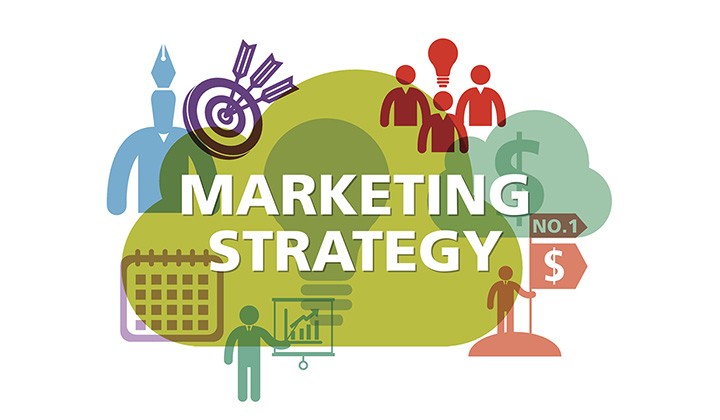In today’s competitive and fast-paced business landscape, organizations can no longer afford to rely on random marketing efforts or guesswork. They need structured, long-term plans to reach the right customers, stand out in the marketplace, and build a sustainable competitive advantage. This is where strategic marketing planning plays a critical role.
Whether you’re a business student, a marketing professional, or an entrepreneur, understanding the principles of strategic marketing planning is essential. In this blog, we will explore what strategic marketing planning is, why it’s important, key components of the process, and how students can master the subject with expert academic support.
What is Strategic Marketing Planning?
Strategic marketing planning is the process through which a business defines its marketing goals, identifies its target audience, evaluates internal and external environments, and develops a roadmap to achieve sustainable growth and customer engagement. Unlike short-term tactical plans, strategic marketing plans typically span over one to five years and align closely with an organization’s overall mission and vision.
At its core, strategic marketing planning involves answering questions like:
- Who are our ideal customers?
- What value do we offer that sets us apart?
- Which channels and tools will help us reach our goals?
- How can we measure success?
The end result is a clear, data-driven marketing strategy that guides decision-making, budgeting, branding, positioning, and promotional efforts.
Why is Strategic Marketing Planning Important?
- Aligns Marketing with Business Goals
Strategic planning ensures that marketing initiatives support broader business objectives such as increasing market share, launching new products, or entering new markets. - Enhances Customer Understanding
By analyzing customer demographics, behavior, and preferences, businesses can develop tailored campaigns that resonate with target audiences. - Improves Resource Allocation
A clear strategy helps companies invest wisely in marketing channels, personnel, and campaigns that deliver the highest return on investment (ROI). - Provides Competitive Advantage
Strategic planning helps businesses differentiate themselves by focusing on their unique selling propositions (USPs), market positioning, and branding. - Supports Long-Term Growth
Rather than chasing short-term wins, strategic marketing planning builds a foundation for sustainable success through consistent messaging and performance tracking.
Key Elements of Strategic Marketing Planning
To create a powerful and effective strategic marketing plan, certain key elements must be included. These include:
1. Situational Analysis
This is the starting point where businesses assess their current position using tools such as:
- SWOT Analysis (Strengths, Weaknesses, Opportunities, Threats)
- PESTLE Analysis (Political, Economic, Social, Technological, Legal, Environmental)
- Porter’s Five Forces (Industry competition and profitability)
2. Marketing Objectives
These are clear, measurable, and time-bound goals such as:
- Increase website traffic by 30% in six months
- Launch three new products by Q3
- Expand into two new regional markets
3. Target Market Selection
This includes segmentation, targeting, and positioning (STP). Companies must define who their customers are, what they need, and how to reach them effectively.
4. Marketing Strategy
This outlines how the brand will achieve its objectives. It includes decisions about:
- Product design and features
- Pricing models
- Distribution channels
- Promotion and advertising strategies
5. Marketing Mix (4Ps/7Ps)
A key tool in strategic planning, the marketing mix ensures all elements—product, price, place, promotion (plus people, process, physical evidence)—are aligned with the company’s goals and customer expectations.
6. Budget and Resource Allocation
Strategic planning includes determining how much money, time, and personnel will be dedicated to each marketing activity.
7. Performance Metrics and KPIs
To evaluate effectiveness, companies use key performance indicators such as:
- Customer acquisition cost (CAC)
- Customer lifetime value (CLV)
- Return on marketing investment (ROMI)
- Conversion rates and engagement metrics
Real-World Example: Apple Inc.
Apple’s strategic marketing planning is one of the best in the industry. Their focus on innovation, customer experience, and premium branding allows them to dominate the market. Through consistent use of strategic tools like product differentiation, global positioning, and market research, Apple maintains strong brand loyalty and profitability year after year.
Challenges Faced by Students in Strategic Marketing Planning Assignments
While the concept of strategic marketing planning is easy to understand in theory, applying it in academic assignments is a different challenge. Students often struggle with:
- Complex frameworks like Ansoff Matrix or BCG Matrix
- Analyzing real-time market data
- Interpreting case studies
- Creating strategic marketing proposals from scratch
- Structuring assignments to meet academic standards
This is where professional help becomes invaluable. If you’re finding it hard to complete your assignment on time or unsure how to integrate marketing concepts into real-world scenarios, Inkmypaper Australia is here to help.
You can click here for Strategic Marketing Planning Assignment Help and get expert assistance that aligns with Australian university guidelines.
How Inkmypaper Australia Can Help You
Inkmypaper Australia offers specialized academic support for students enrolled in marketing and business courses across Australian universities. Our services are designed to help you understand complex topics while achieving excellent grades.
Here’s what sets us apart:
- 100% original, plagiarism-free assignments
- Academic writers with marketing degrees and industry experience
- Use of real-world data and case studies
- Fast turnaround times and 24/7 support
- Free revisions and formatting assistance
We’ve helped thousands of students from universities such as Monash, UNSW, University of Melbourne, and others improve their academic performance. Whether you need a full assignment, a case study analysis, or guidance with frameworks like STP or PESTLE, our team is ready to assist.
Click here to explore Inkmypaper Australia’s marketing assignment services and take the stress out of your academic journey.
Final Thoughts
Strategic marketing planning is more than just theory—it’s a critical business function that drives long-term success. For students, mastering this topic means developing valuable skills in analysis, planning, and execution that are essential for any marketing role.
If you’re struggling with your strategic marketing assignment, don’t hesitate to seek help from professionals who understand both academic and industry expectations. With the right guidance, you can improve your understanding, score higher grades, and gain a competitive edge in your marketing career.
